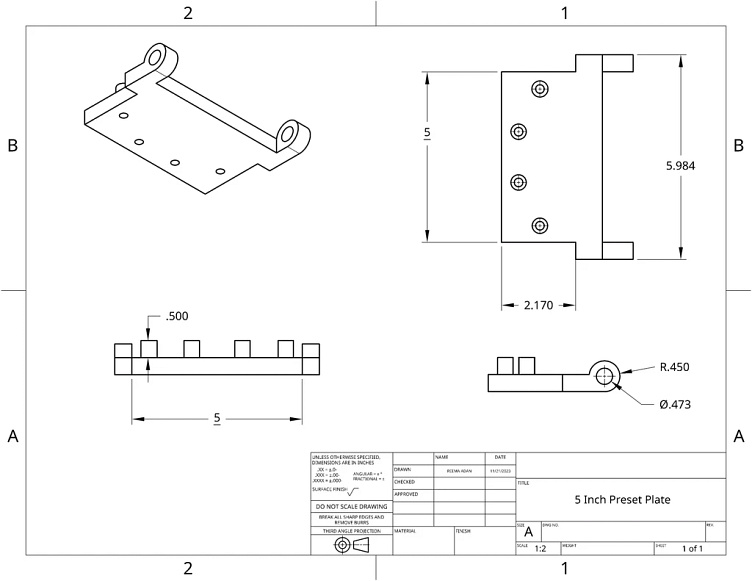Term Project: Door Hinge Jig
Applying digital UX skills to learning physical product design.
Task
Embracing New Challenges
Embarking on the development of the 2-in-1 Door Hinge Jig was a novel experience that pushed the boundaries of our design and engineering capabilities to produce a prototype that would reduce production time by 85% for the client. As a team, we ventured into uncharted territory, grappling with new software, intricate design principles, and rigorous testing protocols. This project was more than just a test of our technical skills; it was a journey of growth, learning, and triumph.
Navigating the Learning Curve
The initial phase of the project was daunting. We had to familiarize ourselves with Onshape, a CAD software that was new to many of us. The steep learning curve was overwhelming at times, making us feel out of our depth. However, through persistence, teamwork, and a willingness to ask questions, we gradually became proficient. This proficiency allowed us to translate our conceptual designs into precise digital models, setting a solid foundation for the physical prototypes.
Applying Design Principles
Designing the 2-in-1 Door Hinge Jig required us to apply fundamental design principles in innovative ways. We focused on:
User-Centric Design: Prioritizing user feedback to ensure the jig met the needs of workshop technicians and DIY enthusiasts.
Functionality and Usability: Ensuring the jig was easy to use, even for those with minimal technical expertise.
Durability and Precision: Selecting materials and refining our design to withstand rigorous use while providing precise drilling results.





